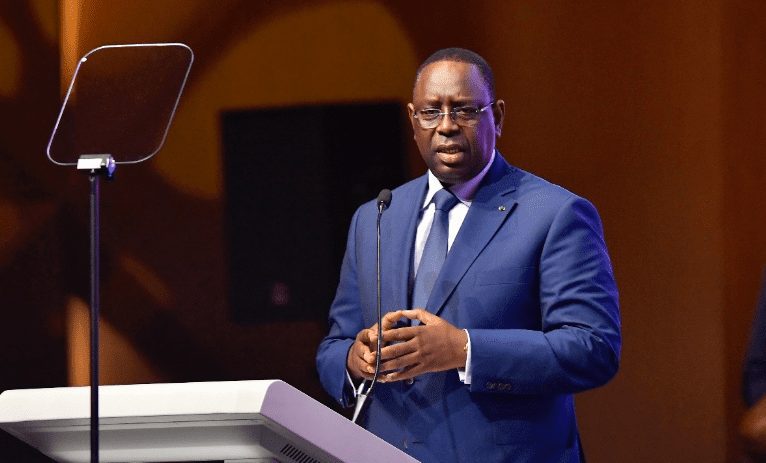President Macky Sall of Senegal harshly criticized the rules governing global economic governance, which according to him “do not match our realities.”
Macky Sall adamantly condemned the demands of international financial institutions on African countries. “Everyone agrees that the current conditions governing economic governance are outdated and unsuited to reality. What is the point of continuing to impose on Africa to respect deficit figures of 5 percent or 6 percent in this double crisis? It makes no sense,” the current Chairman of the African Union (AU) said.
According to him, the economic policies in force were adopted long before African countries’ independence. “Our realities are not taken into account either by the rating agencies or by those who decide. But it is clear that it does not work. And it cannot work. That is the truth. Either we have the courage to say it or we keep quiet,” President Sall added.
Macky Sall was speaking on Monday at the opening in Diamniadio of the ministerial meeting of the 54th Conference of the United Nations Economic Commission for Africa (ECA.)
According to Senegalese head of state, if the status quo persists “it is the very achievement of sustainable development goals by 2030 that will be permanently compromised. From there, he stressed the need to get out of the traditional patterns that have already shown their limits even in normal times. “That is why we are advocating for the effectiveness of Special Drawing Rights (SDRs) for our countries,” Macky Sall went on to say.
Of the 250 billion SDRs issued by the IMF, only 33 billion, or 5 percent, have been allocated to Africa. “This is what we weigh according to the rules that govern the world. Is that what we really weigh on the world economy and the world population? The rules are unfair. They are outdated and we must have the courage to question them together with those who want to progress. Those who have a humanism and solidarity to move the lines,” he said.
Stressing the willingness of African states to innovate in this period of double crisis, President Sall urged American and European initiatives dedicated to recovery to join this innovative approach with long-term loans in return for the realization of structuring infrastructure projects in co-contracting with the African private sector.
“This seems essential to me and without conditionality because otherwise these great initiatives risk the same trajectories,” he warned.
Besides, Macky Sall called on the Organization for Economic Cooperation and Development (OECD) to review its rules for granting credit to African countries. “Developed countries want to sell, we want to buy and build our development so the dialogue between us should be easy but the rules are difficult,” he declared.
Macky Sall who succeeded Felix Tshisekedi at the head of the rotating chairmanship of the AU, “Africa does not talk about aid to develop but partnerships since aid does not solve any problem but at least we discuss the conditions of access to credit, to financial markets in conditions that developed countries use to have resources.”
He thus called for the extension of the maturities of OECD loans to better match the duration of operation of infrastructure financed by these import-export credits.
Similarly, Macky Sall denounced the 15 percent down payment requirement and the poor rating of African countries due to the very high perception of risk compared to the real risks. These parameters lead, according to him, to an increase in the cost of credit that makes African countries less competitive.
He also pointed to these countries that often have revenue problems and have difficulty paying the down payment when we could be satisfied with 5 percent with terms of at least twenty years.
“We cannot build a railroad and ask for a repayment over 10 years, or a power plant to repay over the same period, it is not possible,” President Sall said.
The Senegalese head of state finally reiterated the need to put an end to tax vacations induced in the extractive sector to strengthen the financing of African economies. According to President Sall, the other challenge of financing African economies lies in tax justice, particularly in the extractive sector, mining, gas…
“As elsewhere, the requirement to pay taxes where wealth is created must be effective in Africa. If we paid the taxes due, we would not even need official development assistance. Several billion are at stake every year, which is an opportunity for growth and prosperity for our countries,” he concluded.
ARD/cgd/fss/APA


